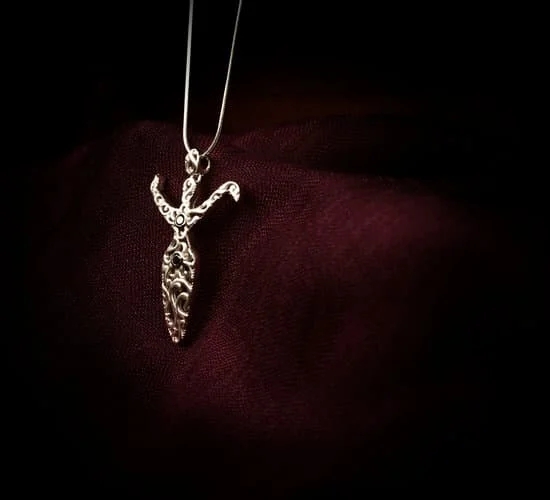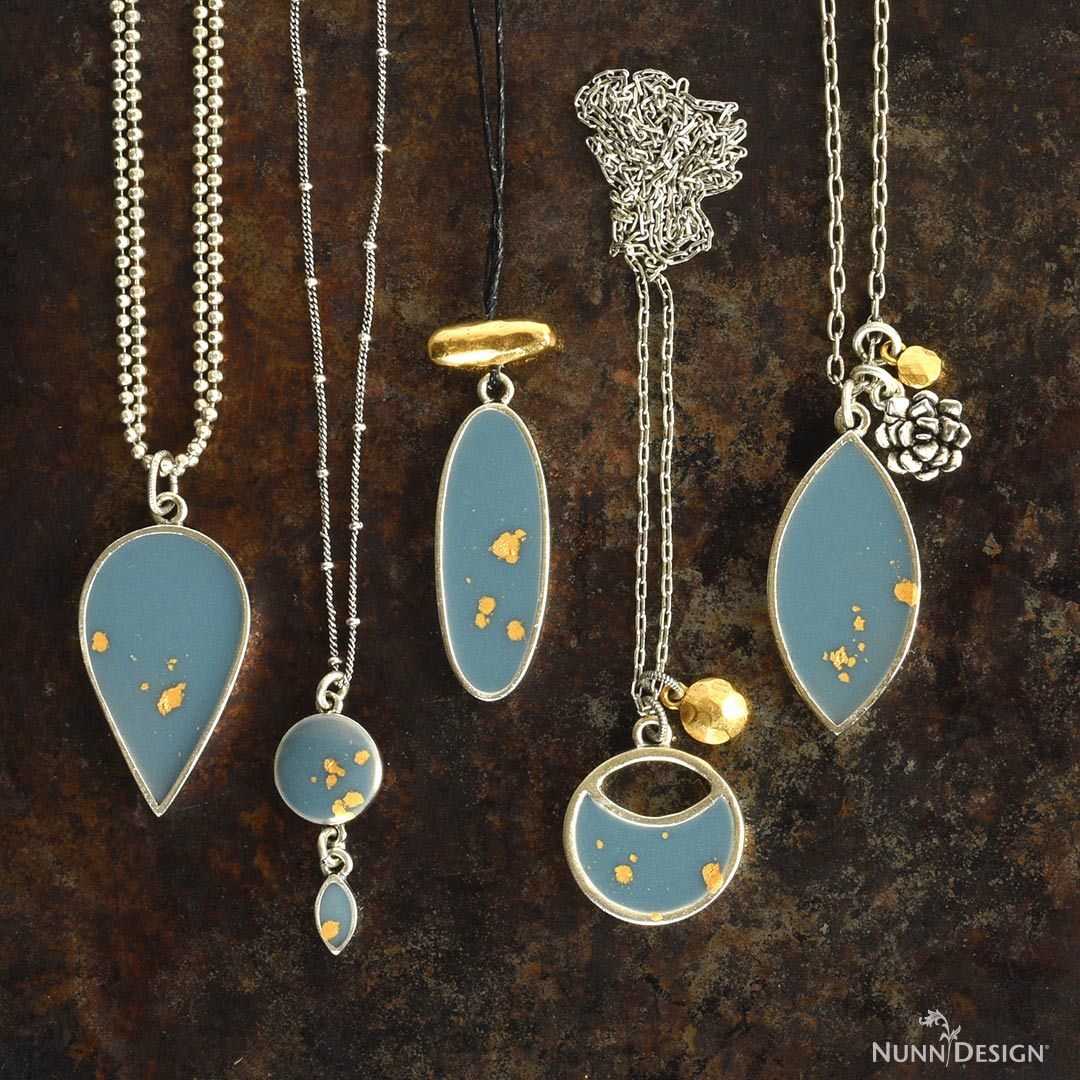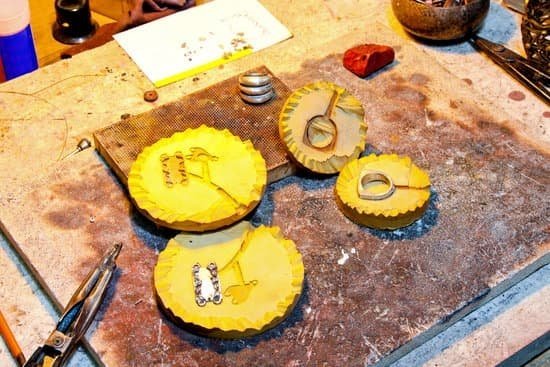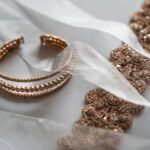The sparkling allure of diamonds has captivated mankind for centuries, making them one of the most sought-after gemstones in the world. Their timeless beauty and elegance make diamonds a popular choice for jewelry making, whether it’s for engagement rings, necklaces, bracelets, or earrings.
If you’re a jewelry maker looking to add the brilliance and sophistication of diamonds to your creations, you may be wondering where to buy these precious stones. In this article, we will explore the various options available for purchasing diamonds for jewelry making.
Whether you’re a professional jeweler or a hobbyist looking to create stunning pieces, it’s essential to understand the different types of diamonds available in order to make an informed decision. From cut and clarity to carat weight and color, each aspect contributes to the overall beauty and value of a diamond. We will delve into this comprehensive guide that will equip you with the knowledge needed to confidently choose the right diamond for your jewelry making project.
In today’s conscious consumerism era, ethical sourcing is more important than ever. The demand for ethically mined diamonds has been on the rise as consumers become increasingly concerned about human rights violations and environmental impact associated with diamond mining. We will emphasize the significance of sourcing ethically mined diamonds and explore reputable retailers who uphold responsible sourcing practices.
As we embark on this journey to discover where to buy diamonds for jewelry making, we will take a closer look at various options available both online and offline. From providing an overview of top-notch online retailers specializing in loose diamonds to exploring local jewelers who offer authentic diamond pieces, we aim to help you find your preferred source. Additionally, we will delve into unique opportunities such as auctions and secondhand markets that may present unconventional routes worth considering.
Join us as we uncover the best options for buying diamonds in jewelry making – from understanding diamond certification processes that ensure authenticity and quality, to examining pros and cons of purchasing loose diamonds versus pre-set jewelry. Whether you’re a seasoned jeweler or just beginning your diamond adventure, this article will guide you through the dazzling world of diamonds and steer you towards the perfect source for your jewelry making needs.
Understanding the Different Types of Diamonds
Diamonds are known for their beauty and brilliance, but not all diamonds are created equal. Understanding the different types of diamonds is essential when it comes to jewelry making. This comprehensive guide aims to provide an overview of the various diamond types and their characteristics.
- Natural Diamonds: Natural diamonds are formed deep within the Earth’s mantle over millions of years under intense pressure and heat. They are mined from diamond deposits and come in a variety of sizes, shapes, and colors.
- Synthetic Diamonds: Also known as lab-grown or man-made diamonds, synthetic diamonds are created in a laboratory using high-pressure high-temperature (HPHT) or chemical vapor deposition (CVD) processes. These diamonds have the same physical and chemical properties as natural diamonds but are more affordable.
- Fancy Color Diamonds: While most diamonds are colorless or have a faint yellow tint, fancy color diamonds come in a wide range of vibrant hues such as blue, green, pink, and even red. These naturally colored diamonds are rare and highly sought after for their unique beauty.
- Diamond Clarity: Clarity refers to the presence of internal or external flaws called inclusions and blemishes respectively. The Gemological Institute of America (GIA) grades diamond clarity on a scale from Flawless (no inclusions or blemishes visible under 10x magnification) to Included (inclusions visible to the naked eye).
- Diamond Cut: The cut of a diamond determines its ability to reflect light and sparkle. It includes factors such as proportion, symmetry, polish, and the quality of facet placement. The GIA grades diamond cut on a scale from Excellent to Poor.
- Diamond Carat Weight: Carat weight is often used interchangeably with size but actually refers to the weight of a diamond. One carat is equal to 200 milligrams, and larger diamonds tend to be rarer and more expensive.
Understanding the different types of diamonds is crucial when selecting the perfect diamond for your jewelry making projects. Whether you prefer a natural, synthetic, or fancy color diamond, consider factors such as clarity, cut, carat weight, and color to find the diamond that suits your design and budget.
The Importance of Sourcing Ethically Mined Diamonds for Jewelry Making
Diamonds have long been revered for their beauty and rarity, making them a popular choice for jewelry making. However, there is growing awareness about the ethical concerns surrounding the diamond industry. As consumers become more conscious of the impact their purchases have on society and the environment, there is an increasing demand for ethically sourced diamonds. This section will delve into the importance of sourcing ethically mined diamonds for jewelry making.
Ethical mining ensures that diamonds are sourced in a way that minimizes harm to people and the environment. Traditional diamond mining has often been associated with human rights abuses, such as forced labor and child exploitation. Additionally, diamond mining can have a detrimental impact on the environment, including deforestation and water pollution. By choosing ethically mined diamonds, jewelry makers can ensure that their creations are free from these unethical practices.
One way to ensure ethical sourcing is to buy diamonds from companies that adhere to certifications such as the Kimberley Process Certification Scheme (KPCS). The KPCS was established in 2003 to prevent conflict diamonds from entering the mainstream market. Conflict diamonds, also known as blood diamonds, are those that have been used to fund armed conflict against governments. The certification ensures that every shipment of rough diamonds is accompanied by a certificate verifying its ethical origin.
| Fact | Data |
|---|---|
| % of global diamond production considered ethical | Approximately 1% |
| Number of countries involved in the Kimberley Process Certification Scheme | 81 countries |
| Number of carats exported under KPCS each year | Average of 150 million carats |
| Value of global diamond jewelry market in 2020 | $79 billion |
By choosing to source ethically mined diamonds, jewelry makers can not only create beautiful pieces but also contribute to positive change within the industry. It allows them to support companies that prioritize fair labor practices and environmentally responsible methods. With increasing consumer demand for ethically sourced diamonds, more options are becoming available in the market. In the next section, we will explore where to buy diamonds for jewelry making from online retailers that specialize in ethically sourced diamonds.
Where to Buy Diamonds for Jewelry Making
Online retail has become increasingly popular for purchasing diamonds for jewelry making. With the convenience of shopping from home and access to a wide variety of options, online retailers offer a tempting alternative to traditional brick-and-mortar stores. Here are some top online retailers where you can find quality diamonds for your jewelry making projects:
- Blue Nile: Blue Nile is a well-known and highly reputable online retailer that specializes in diamonds and engagement rings. They offer a vast selection of loose diamonds in various shapes, sizes, and qualities. Blue Nile also provides detailed information and high-resolution images of each diamond, allowing you to make an informed decision.
- James Allen: Another popular choice among jewelry makers is James Allen. They pride themselves on their extensive inventory of loose diamonds and provide 360-degree HD imagery for all their stones. Additionally, James Allen allows customers to design their own engagement rings by selecting the diamond and setting separately.
- Brilliant Earth: If ethical sourcing is important to you, Brilliant Earth is a fantastic option. They specialize in ethically sourced diamonds that adhere to strict environmental and labor standards. Brilliant Earth offers an array of stunning diamonds with detailed origin information, ensuring transparency throughout the supply chain.
- Whiteflash: Known for their exceptional diamond craftsmanship, Whiteflash is renowned for their selection of ideal cut diamonds that maximize brilliance and sparkle. They offer meticulously crafted engagement rings as well as loose certified diamonds that cater to various budgets.
When purchasing from these online retailers, it’s important to consider factors such as customer reviews, return policies, certifications (such as GIA or AGS), and warranties offered by each retailer. Additionally, be sure to compare prices across different websites to ensure you’re getting the best value for your money.
Shopping for diamonds online not only provides convenience but also allows you access to a wider range of options compared to local jewelers. However, it’s important to do thorough research and exercise caution when making purchases online. By choosing reputable online retailers with positive customer feedback, you can confidently find quality diamonds for your jewelry making endeavors.
Exploring Local Jeweler Options
Local jewelers can be a valuable resource for those looking to buy authentic diamonds for jewelry making. These establishments often have a wide selection of high-quality diamonds, ranging in size, cut, and clarity. When considering local jeweler options, there are a few key factors to keep in mind.
Trust and Reputation
One of the main advantages of buying from a local jeweler is the opportunity to establish a personal relationship with the seller. Local jewelers often prioritize customer satisfaction and strive to maintain trust and integrity within their communities.
Before making a purchase, it is important to research the reputation of the jeweler and verify their certifications or memberships in industry organizations such as the Gemological Institute of America (GIA) or Jewelers of America (JA). This will ensure that the jeweler follows ethical practices and sells authentic diamonds.
Expertise and Guidance
Another benefit of purchasing diamonds from local jewelers is access to their expertise and guidance throughout the buying process. Professional jewelers can offer insight into different diamond cuts, colors, clarities, and carat weights based on an individual’s preferences and budget. They can also help educate customers on how to assess diamond quality using tools such as magnification devices and diamond grading reports. Additionally, jewelers may provide customization services for those who want to create unique pieces of jewelry.
Customization Options
Local jewelers often offer customization options for those seeking personalized diamond jewelry. This allows customers to create one-of-a-kind pieces that reflect their individual style and preferences.
Whether it’s designing an engagement ring or resetting heirloom diamonds into new settings, local jewelers have the expertise and resources to bring these visions to life. Working closely with a jeweler enables customers to explore different design options, select metals and gemstones that complement their diamonds, and ensure that every detail meets their expectations.
Considering Auctions
Auctions have long been known as a unique and exciting way to acquire rare and valuable items, including diamonds for jewelry making. Participating in an auction can provide an opportunity to find one-of-a-kind pieces or obtain diamonds at a potentially lower cost. However, before diving into the world of auctions, it is important to understand the process and consider both the advantages and disadvantages.
The Auction Experience: How It Works
Auctions offer a dynamic environment where buyers compete for items by placing bids. When it comes to purchasing diamonds for jewelry making, auctions can be a thrilling way to acquire stunning stones. Many reputable auction houses specialize in fine jewelry and gemstones, providing access to expertly curated collections that encompass a wide range of diamond shapes, sizes, colors, and cuts.
Before attending an auction, it is essential to research the auction house’s reputation and track record. Look for well-established auction houses with a history of dealing with high-quality diamonds and transparent bidding processes. Familiarize yourself with the terms and conditions set forth by the auction house, as each one may have specific rules regarding registration, bidding increments, buyer’s premium fees, and return policies.
The Advantages and Disadvantages of Auctions
One advantage of purchasing diamonds at auctions is the potential for obtaining exceptional value. In some cases, buyers may be able to secure high-quality diamonds at prices lower than what they would find at traditional retail stores. Auctions also offer an opportunity to come across unique or rare diamonds that may not be readily available elsewhere.
However, there are also some drawbacks to consider when buying diamonds through auctions. The competitive nature of bidding can drive up prices quickly and result in final costs higher than anticipated. Additionally, unlike purchasing from established retailers or dealers who guarantee certain quality standards or offer certifications, buying from auctions may involve a certain level of uncertainty regarding the exact characteristics or certifications of the diamonds.
It is important to approach auctions with a clear budget in mind and exercise caution to avoid getting caught up in the excitement and exceeding your financial limitations. Prioritize thorough examination of any diamonds you are interested in before making a bid, including assessing their quality, condition, and authenticity.
Unconventional Routes
When it comes to buying diamonds for jewelry making, exploring secondhand markets can be an unconventional yet rewarding option. Secondhand diamonds offer a unique opportunity to find one-of-a-kind pieces at a more affordable price. This section will delve into the advantages and considerations of purchasing diamonds from secondhand markets, as well as provide some popular platforms where you can begin your search.
Purchasing diamonds from secondhand markets has gained popularity due to its potential cost savings. Often, secondhand diamonds are sold at a lower price compared to new ones, making it an attractive option for budget-conscious individuals. Additionally, buying secondhand allows you to acquire vintage or antique pieces that have their own charm and character. These unique diamonds may hold historical significance or feature intricate designs that are not commonly found in modern jewelry.
However, there are important considerations when exploring secondhand markets for diamonds. Firstly, it is crucial to ensure the authenticity and quality of the diamond before making a purchase. Look for reputable sellers who provide detailed information about the diamond’s characteristics, such as carat weight, color, clarity, and cut. It is recommended to request any available certifications or appraisals to validate the diamond’s authenticity.
When browsing through secondhand marketplaces, be prepared to invest time in researching and comparing different options. This will help you make an informed decision and find the best deal possible. Keep in mind that while secondhand markets offer great opportunities, they may also present risks if proper due diligence is not exercised.
| Platform | Features |
|---|---|
| Ebay | Large selection of diamonds from individual sellers. |
| Online Auction Houses (e.g., Sotheby’s, Christie’s) | Opportunity to bid on unique and rare diamonds. |
| Pawn Shops | Potential to find discounted diamonds due to their fast turnaround nature. |
| Estate Sales | Chance to discover diamonds from inherited estates or personal collections. |
Exploring secondhand markets for diamonds can be an exciting and fulfilling way to find the perfect gems for your jewelry making project. Whether you are looking for a budget-friendly option or seeking a piece with historical significance, these unconventional routes offer a wealth of possibilities. With careful research and attention to quality, you may come across stunning diamonds that elevate your creations into true works of art.
The Pros and Cons of Purchasing Loose Diamonds versus Diamond Pre-Set Jewelry
When it comes to buying diamonds for jewelry making, one of the main decisions you’ll have to make is whether to purchase loose diamonds or diamond pre-set jewelry. Both options have their own advantages and disadvantages, so it’s important to carefully consider your preferences and needs before making a decision.
One of the main benefits of purchasing loose diamonds is the flexibility they offer. By buying loose diamonds, you have the freedom to create custom designs and choose every aspect of your jewelry, from the setting to the arrangement of stones. This option allows you to fully personalize your piece and create something unique that perfectly suits your taste and style.
On the other hand, purchasing diamond pre-set jewelry can save you time and effort. With pre-set jewelry, all you need to do is choose a design that appeals to you and make your purchase. This can be particularly convenient if you’re short on time or don’t want to go through the process of designing a custom piece. Additionally, diamond pre-set jewelry often comes with a complete appraisal and certification, assuring authenticity and quality.
However, it’s important to note that choosing between loose diamonds and diamond pre-set jewelry also comes down to budget considerations. In general, purchasing loose diamonds tends to be more cost-effective than buying pre-set pieces. This is because when buying loose diamonds, you’re only paying for the stone itself without any additional costs associated with designing or setting it into jewelry. On the other hand, pre-set diamond jewelry includes these additional costs in its price.
Ultimately, whether you decide to purchase loose diamonds or diamond pre-set jewelry depends on what factors are most important to you – customization, convenience, or budget considerations. It’s always recommended that you do thorough research and explore different options before making a final decision as choosing high-quality diamonds is crucial in creating stunning pieces of jewelry that will last for generations.
The Diamond Certification Process
The diamond certification process is a crucial step in ensuring the authenticity and quality of diamonds used in jewelry making. A diamond certificate, also known as a grading report, provides an objective assessment of a diamond’s characteristics, including its cut, clarity, color, and carat weight. This certification not only verifies the authenticity of the diamond but also provides valuable information for buyers and jewelers.
When purchasing diamonds for jewelry making, it is essential to look for diamonds that come with a reputable certification from a recognized gemological laboratory. The most well-known and respected laboratories include the Gemological Institute of America (GIA), the International Gemological Institute (IGI), and the American Gem Society (AGS). These laboratories use standardized grading systems and have stringent processes in place to evaluate diamonds thoroughly.
A diamond certificate not only guarantees that the stone is natural but also provides detailed information about its quality. The certification will typically include diagrams or graphics illustrating the stone’s characteristics and any unique features such as inclusions or blemishes. It is important to note that while some certifications may grade diamonds more strictly than others, it is generally recommended to rely on GIA-certified diamonds for their reputation of being consistent and reliable.
Conclusion
In conclusion, when it comes to buying diamonds for jewelry making, there are several options available to consider. Online retailers have become a popular choice for their convenience and wide selection of diamonds. It is important, however, to ensure that these online retailers are reputable and offer certified diamonds to guarantee quality and authenticity.
Another option for purchasing diamonds is through local jewelers. These establishments often have the advantage of being able to provide you with personalized assistance and guidance in choosing the right diamond for your specific jewelry making needs. They may also offer a greater sense of trust, as you can physically inspect the diamond before making a purchase.
Auctions can provide unique opportunities to purchase diamonds for jewelry making. Whether in-person or online, auctions offer the chance to acquire rare and high-quality diamonds at potentially lower prices. However, it’s crucial to conduct thorough research before participating in an auction and be mindful of your budget.
Lastly, secondhand markets can be an unconventional route for finding diamonds. While they may require more extensive searching and vetting, secondhand markets can offer unique pieces that cannot be found elsewhere. However, it is important to carefully examine any secondhand diamond purchases and ensure they come with proper documentation of authenticity.
In summary, the best options for buying diamonds in jewelry making involve considering online retailers, local jewelers, auctions, and secondhand markets. Each option has its own advantages and drawbacks, so it’s essential to weigh them carefully based on your specific needs and preferences. By doing so, you can unlock a world of possibilities when it comes to creating stunning jewelry with diamonds as the centerpiece.
Frequently Asked Questions
Where do most jewelers get their diamonds?
Most jewelers source their diamonds from various suppliers in the diamond industry. These suppliers can include diamond wholesalers, diamond cutters, and diamond traders.
The diamond industry operates on a global scale, with diamonds being mined in different countries such as South Africa, Russia, Australia, and Canada. Jewelers often establish relationships with trusted suppliers who adhere to ethical and legal practices in the diamond trade.
Can I buy diamonds in bulk?
Yes, it is possible to buy diamonds in bulk. However, purchasing diamonds in larger quantities typically requires dealing directly with diamond wholesalers or manufacturers rather than retail jewelers.
Wholesale dealers typically cater to businesses rather than individual consumers, offering a wide range of loose diamonds at competitive prices. Buying diamonds in bulk may be beneficial for those in the jewelry business who require a consistent supply of stones for manufacturing or retail purposes.
Is it cheaper to buy a diamond wholesale?
Generally, buying diamonds wholesale can be more cost-effective compared to purchasing them at retail prices. Wholesale prices are often lower because retailers need to add a markup to cover their overhead expenses and profit margins. By buying directly from wholesalers or manufacturers, consumers can bypass these additional costs and potentially secure better deals on diamonds.
However, it is worth noting that wholesale transactions usually involve buying diamonds in larger quantities or reaching specific purchase thresholds specified by the wholesaler or manufacturer. Nonetheless, if you are considering a significant investment or have high-demand for multiple diamonds, exploring the wholesale market can offer potential savings.

Welcome to my jewelry blog! My name is Sarah and I am the owner of this blog.
I love making jewelry and sharing my creations with others.
So whether you’re someone who loves wearing jewelry yourself or simply enjoys learning about it, be sure to check out my blog for insightful posts on everything related to this exciting topic!





